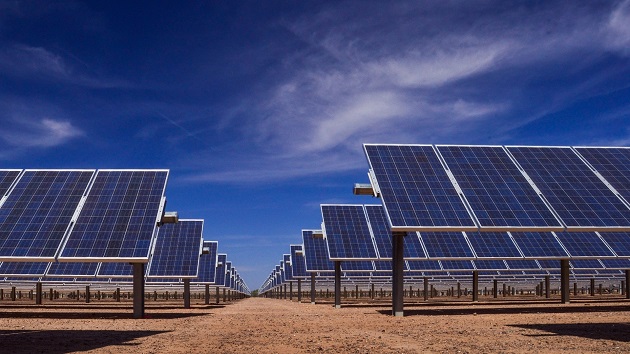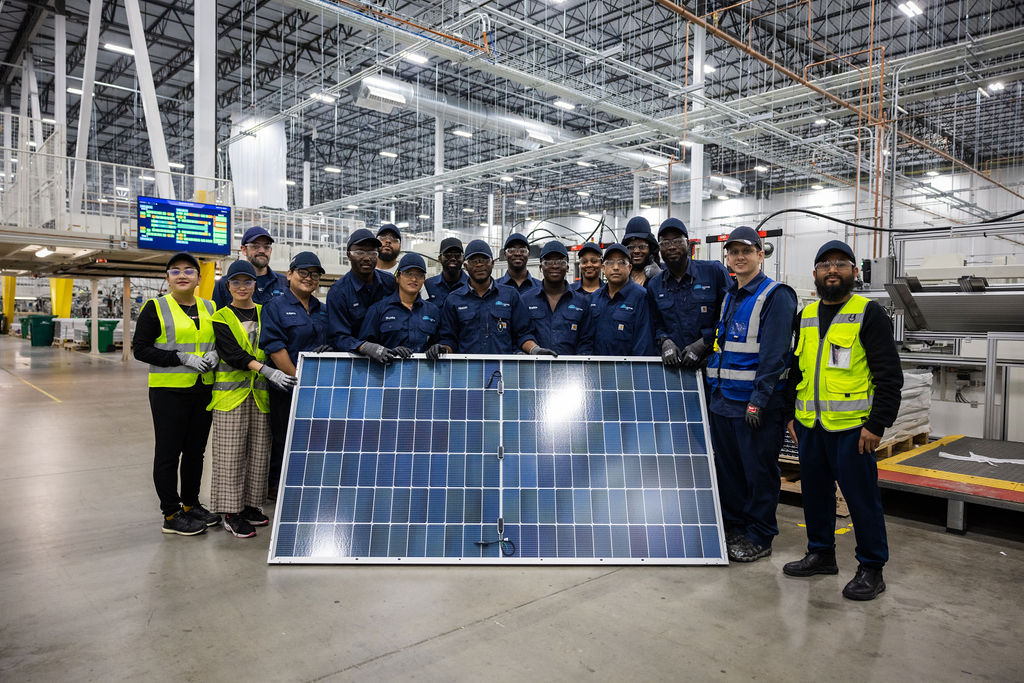Things about Solar Panel Company Virginia
Things about Solar Panel Company Virginia
Blog Article
Solar Company Near Me Virginia: Lumina Solar Focuses On Supplying Advanced Photovoltaic Solutions For Residences And Companies
History and Establishing
Have you ever questioned how a photovoltaic panel company springs from a simple stimulate of inspiration into a powerhouse here of eco-friendly energy? It typically starts with a vision-- one fueled by a mix of innovation, decision, and a pinch of serendipity. The journey of lots of solar companies mirrors the evolution of the technology itself: from large, inefficient panels to sleek, high-efficiency marvels utilizing the sun's bounty.
The Early Days
In the late 20th century, when solar energy was still a specific niche concept, leaders planted seeds for what would become a global movement. Envision a little workshop filled with curious engineers, relentlessly try out solar batteries. Their enthusiasm was palpable, frequently driven by a desire to fight climate modification and minimize reliance on fossil fuels.
One such anecdote has to do with a creator who, influenced by a camping journey, understood that even in remote areas, the sun could power essential gadgets. This basic observation stimulated a company's objective to democratize access to clean energy.
Founding Principles

- Innovation: Continuously pushing the boundaries of solar innovation to improve performance and toughness.
- Sustainability: Dedicating to environment-friendly production and reducing carbon footprints.
- Accessibility: Making sustainable energy services budget-friendly and practical for everyday users.
Milestones in Development
| Year | Secret Event |
|---|---|
| 1985 | Company founded in a small garage, concentrating on research and advancement. |
| 1995 | Business solar panel item released, gaining local attention. |
| 2005 | Broadened to worldwide markets, welcoming global renewable energy goals. |
| 2015 | Introduced cutting-edge photovoltaic panel technology with improved energy conversion. |
Isn't it fascinating how these incremental actions, typically ignored, shape the energy landscape today? The solar panel business story is not practically technology; it's about an unrelenting quest for a brighter, cleaner future.

Innovations in Photovoltaic Panel Technologies
Ever discovered how some photovoltaic panels gleam brighter and last longer? It's not magic; it's the science of photovoltaic efficiency. Modern photovoltaic panel companies invest greatly in innovations like bifacial cells, which record sunlight from both sides, enhancing energy harvest without expanding roofing area. Have you ever wondered why some panels perform much better on cloudy days? That is because of advances in thin-film solar technology, which thrives under diffused light conditions.
Product Variations Customized to Special Needs
One size never ever fits all. Solar panel providers now offer:
- Monocrystalline panels for optimum performance and smooth aesthetics, perfect for space-constrained roofs.
- Polycrystalline panels, which provide a cost-effective option without sacrificing excessive output.
- Building-integrated photovoltaics (BIPV), merging solar tech effortlessly into architectural aspects like windows and exteriors.
Picking the right product isn't almost upfront cost; it's about matching your environment, energy objectives, and long-lasting savings. Homes shaded by trees require panels that stand out in low-light situations, something numerous overlook till energy costs climb up all of a sudden.
Technical Tips for Ideal Selection
- Examine the temperature coefficient-- lower worths suggest panels lose less efficiency on hot days.
- Try to find panels with enhanced anti-reflective finishings to optimize light absorption.
- Think about the panel's service warranty not just for flaws, however for guaranteed power output over decades.
- Don't undervalue the value of the inverter technology coupled with the panels; it can make or break your system's efficiency.
Beyond Panels: Emerging Patterns
Envision photovoltaic panels that adjust their angle instantly to chase the sun-- tracking systems are becoming more available, increasing yield significantly. Or solar tiles that blend invisibly into your roofline, transforming your home into a quiet, self-sufficient power generator. These developments are reshaping what a solar panel company provides-- not just products, however incorporated energy services.
Market Existence and Global Operations
Ever wonder why some solar panel business seem to grow up in every corner of the world while others hardly make a ripple? The distinction lies not just in technology but in mastering the art of navigating varied markets. Broadening globally is like planting seeds in different environments-- you should comprehend each environment's unique conditions to thrive.
Take, for example, the detailed dance of logistics and supply chain management. Shipping panels halfway across the world isn't just about range; it has to do with timing, customizeds, tariffs, and adapting to regional need fluctuations. A company with robust international operations expects these variables, ensuring panels get here on schedule without pumping up expenses. This foresight is no little task and typically separates market leaders from followers.
Secret Techniques for Expanding Market Existence
- Localized manufacturing: Establishing production centers near target markets decreases shipping hold-ups and import intricacies.
- Strategic partnerships: Teaming up with local companies speeds up market penetration and develops trust.
- Adaptive product style: Tailoring photovoltaic panel tech to weather, sun strength, and infrastructure nuances improves performance and approval.
What about the human aspect? Photovoltaic panel companies operating globally need to reconcile cultural differences and regulatory subtleties without losing sight of their core mission. What works in a sun-drenched desert may falter in a humid seaside area. Often, the most ingenious option is just listening-- soaking up local insights to refine technology and technique.
Professionals frequently advise a phased rollout rather than a shotgun growth. Why run the risk of overextension when measured development constructs sustainable momentum? Scaling carefully indicates balancing ambition with functional strength - Solar Companies in Virginia. After all, in the race for sustainable energy supremacy, perseverance can be as important as speed
Environmental Effect and Sustainability Practices
When photovoltaic panels initially emerged, lots of assumed they carried zero environmental luggage. The reality is more nuanced. The production of solar batteries includes unusual earth metals and energy-intensive procedures, which can leave a sizable carbon footprint before the panels even reach roofs. Yet, the true environmental cost depends heavily on the sustainability practices utilized by the solar panel business throughout the lifecycle of their items.
How frequently do we pause to consider what takes place to solar panels at the end of their useful life? Unlike batteries or electronics, photovoltaic panels can last 25-30 years, but disposal and recycling pathways remain underdeveloped in numerous areas. A business devoted to reducing ecological harm will have a robust plan for recycling photovoltaic materials, salvaging important silicon, glass, and metals to avoid garbage dump accumulation.
Secret Sustainability Strategies
- Using low-impact production techniques that decrease water and energy consumption.
- Carrying out closed-loop systems to recycle production waste back into brand-new panels.
- Taking part in transparent supply chain audits to ensure ethical sourcing of basic materials.
- Creating panels for easier disassembly to assist future recycling efforts.
It's worth noting that some solar companies have pioneered ingenious techniques, such as incorporating eco-friendly parts or utilizing less poisonous chemicals during fabrication. This not only decreases environmental strain but also sets a precedent for the market. The concern stays: can the solar market really pivot towards a circular economy model without compromising effectiveness or affordability?
Professional Tips for Assessing Sustainability
- Inquire about the company's dedication to carbon-neutral production and whether they balance out emissions.
- Investigate if they partner with licensed recycling centers dedicated to solar panel waste.
- Search for openness reports detailing environmental effects and sustainability objectives.
- Think about the longevity and guarantee of panels as an indirect procedure of resource performance.
In the end, going with solar energy should indicate more than simply slashing electrical energy costs; it has to do with nurturing a future where energy is harvested properly and waste is attentively managed. Solar panel companies that embrace this philosophy not only illuminate homes but also cast a brighter light on sustainable innovation.
Report this page